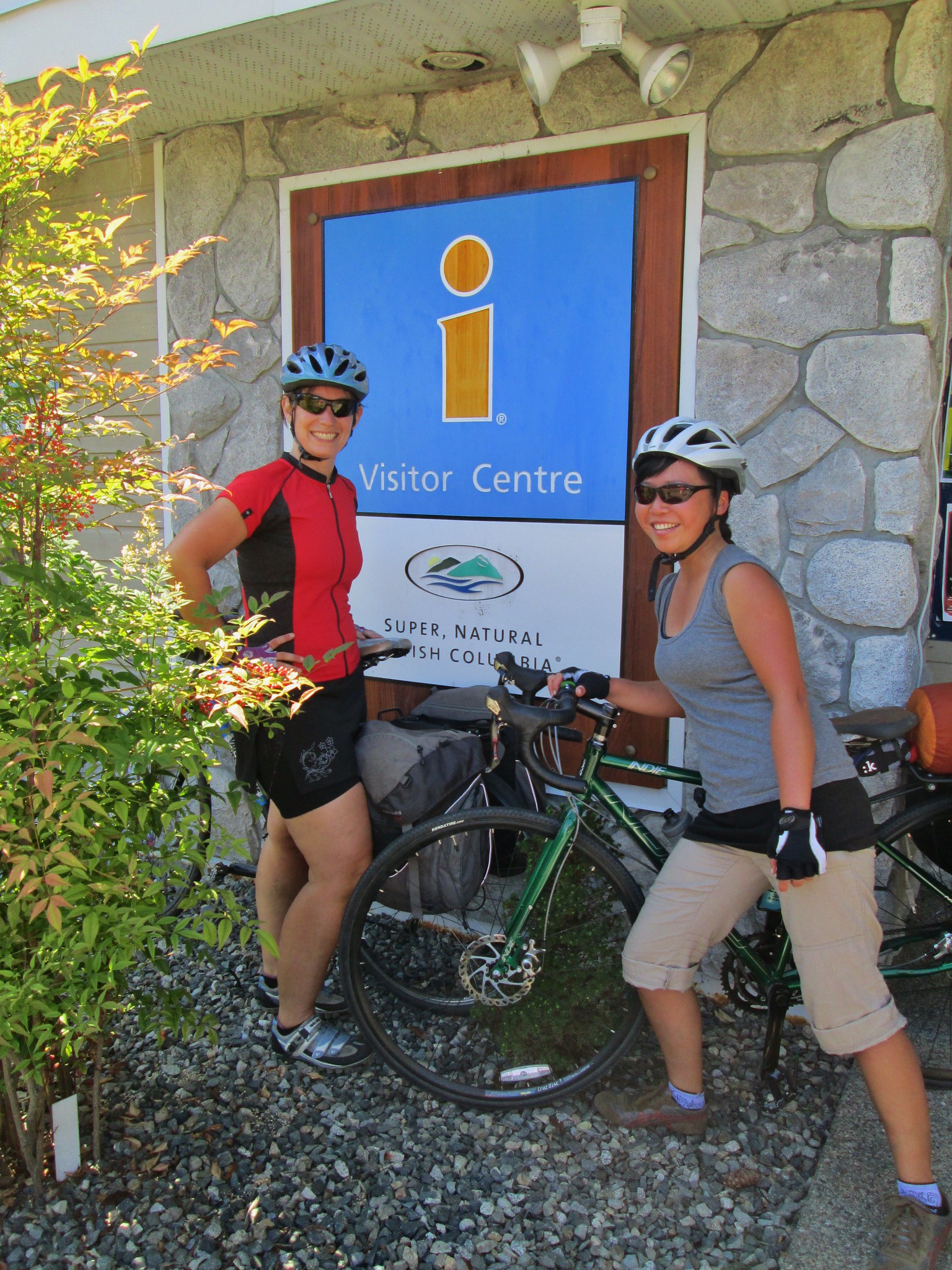Chapter 7. Travel Services
7.2 Travel Services in Canada and BC
Travel Agencies
Travel agencies are the retail side of the industry. Working in cooperation with suppliers throughout the distribution chain, travel agencies provide an important link for the consumer to connect with the best options for a successful trip. Planning vacations or business trips can be complicated matters and qualified agents can help the traveller with professional services.
In British Columbia and elsewhere in Canada, advocacy for travel service organizations and professional certification for individuals is provided by the Association of Canadian Travel Agencies (ACTA). ACTA is an industry-led, membership-based organization that aims to ensure customers have professional and meaningful counselling. Membership is optional, but it does offer the benefit of ensuring customers receive the required services and that the travel agencies have a membership board for reference and industry resources (ACTA, 2020b).
Spotlight On: Travelcuts Travel Agency
Travelcuts is 100% Canadian owned and operated. As a student, you may have seen its locations on or around campus. With a primary audience of post-secondary students, professors, and alumni, Travel CUTS specializes in backpack-style travel to a variety of destinations. It is a full-service travel agency that can help find flights for travel, book tours with a variety of companies including GAdventures or Intrepid Travel, assist in booking hostels or hotels, and even help with a “Live and Work Abroad” program. For more information, visit Travelcuts website.
Although travel agencies may be located in a specific community, the agencies and their representatives may operate internationally, within Canada, within BC, or across regions. In Vancouver alone there are over 650 travel agencies available to the searching traveller (Travel Agents in BC, 2020). Examples of some of the more recognized larger travel agencies and agents operating in BC include the British Columbia Automobile Association (BCAA), Marlin Travel, and Flight Centre.
Tour Operators
Many different types of tour operators work across BC and Canada. Tour operators can specialize in any sector or a combination of sectors. A company may focus on ski experiences, as is the case with Destination Snow, or perhaps wine tours in the Okanagan, which is the specialty of Distinctly Kelowna Tours. These operators specialize in one area but there are others that work with many different service providers.
Spotlight On: Canadian Association of Tour Operators
The Canadian Association of Tour Operators (CATO) is a membership-based organization that serves as the voice of the tour operator segment and engages in professional development and networking in the sector. For more information, visit the Canadian Association of Tour Operators website.
Tour operators can vary in size, niche market, and operation capacity (time of year). An example of a niche BC tour operator is Prince of Whales Whale Watching in Victoria. Prince of Whales offers specialty whale-watching tours year-round in a variety of boat sizes, working with the local DMO and other local booking agents to sell tours as part of packages or as a stand-alone service to travellers. It also works to sell its product directly to the potential traveller through its website, reservation number, and in-person sales agents (Prince of Whales, 2020).

An example of a large RTO representing Canada is Jonview. Operators of all kinds frequently work closely with a number of destination marketing organizations, as evidenced during Canada’s West Marketplace, which is a trade marketplace hosted by Destination BC and Travel Alberta. Each year the location of the marketplace alternates between Alberta and BC (past locations have included Kelowna and Canmore). This event provides an opportunity for Alberta and BC sellers (tour operators, local accommodation, activities, and DMOs) to sell their products to international RTOs who in turn work with international tour operators and travel agents to repackage the travel products. In a span of 10-minute sessions, sellers market and promote their products in hopes of having an RTO pick up the package for future years.
On a national scale, Rendez-vous Canada is a tourism marketplace presented by the Destination Canada (formally the Canadian Tourism Commission) that brings together more than 1,500 tourism professionals from around the world for a series of 12- minute sessions where they can learn more about Canadian tours and related services (Canadian Tourism Commission, 2020).
Let’s now look a little closer at the role of BC destination marketing organizations (DMOs) in providing travel services.
Destination Marketing Organizations
At the national level, Destination Canada is responsible for strategic marketing of the country. It works with industry and government while providing resources for small and medium-sized businesses in the form of toolkits. In BC, there a variety of travel service providers available to help with the planning process including Destination BC/HelloBC, regional destination marketing organizations (RDMOs), and local DMOs.
Destination BC/HelloBC
HelloBC is the official travel service platform of Destination BC, British Columbia’s provincial DMO. HelloBC.com offers access to festival activities, accommodation, transportation options, and trip ideas. This website is complemented by a social media presence on TripAdvisors (HelloBC, 2014a).
To assist with trip planning, HelloBC features a booking agent system, offering discounts and special deals created in partnership with operators. Although the site can process these value-added components, it does not handle accommodation bookings, instead directing the interested party to the reservation system of a chosen provider.

In addition to operating HelloBC, Destination BC also oversees a network of 136 Visitor Centres that can be identified by the blue and yellow logo. These are a source of itinerary information for the FIT and a purchase point for travellers wishing to book trip components (HelloBC, 2014b,c).
Regional Destination Marketing Organizations
BC is divided into six regional destination marketing organizations, or RDMOs: these are: Vancouver, Coast, & Mountains; Vancouver Island; Thompson Okanagan; Northern British Columbia; Cariboo Chilcotin Coast; and the Kootenay Rockies (HelloBC, 2020d). Along with Destination BC, these RDMOs work to market their designated region.

Housed within the HelloBC online platform, each RDMO has an online presence and travel guide specific to the region as well as a regional social media presence. These guides are important as they allow regional operators to participate in the guide and consumer website in order to encourage visitation to the area and build their tourism operations.
Take a Closer Look: BC’s Regional DMOs
For more information on each RMDO, visit the following consumer and industry websites. Similar to Destination Canada and Destination BC these DMOs provide services for both consumers (travellers) and industry.
Vancouver Island
Consumer: Vancouver Island
Industry: Vancouver Island
Thompson Okanagan
Consumer: Okanagan
Industry: Okanagan
Northern British Columbia
Consumer: Northern BC
Industry: Northern BC
Cariboo Chilcotin Coast
Consumer: Cariboo Chilcotin Coast
Industry: Cariboo Chilcotin Coast
Kootenay Rockies
Consumer: Kootenay Rockies
Industry: Kootenay Rockies
Community Destination Marketing Organizations
Community destination marketing organizations (CDMOs) are responsible for marketing a specific destination or area, such as Whistler or Kimberley. Travel services typically offered include hotel search engines, specific destination packages and offers, discounts, events and festival listings, and other information of interest to potential visitors. In the absence of a CDMO, sometimes these services are provided by the local chamber of commerce or economic development office.
Spotlight On: Tourism Tofino
Tourism Tofino is the local DMO for the Tofino area, located on the west side of Vancouver Island. Tofino is a destination region that attracts travellers to Pacific Rim National Park, surfing opportunities, storm watching, and the Pacific Ocean. As part of its marketing tactics, Tourism Tofino offers visitors key planning tools on the landing site. To encourage shoulder season visitation, storm-watching deals are highlighted, which also allows visitors to inquire directly with the accommodation provider and/or tour operator. For more information, visit the Tourism Tofino website.
Complementing BC’s Visitor Centre network mentioned earlier, local visitor centres are managed by individual communities. Visitor centres may be housed in gateway buildings at strategic locations, in historic or cultural buildings, or at an office located in town.
Other Systems and Organizations
A number of customized and targeted reservation systems are used by BC DMOs and other organizations. One example is the BC campground reservation online booking systems. BC Parks, Parks Canada, and private campground operators all use different proprietary reservation systems. Both BC Parks reservations and Parks Canada reservations open on a specific date in the spring for bookings later in the year. These systems let visitors review what a site looks like through photos or video and pick which site they would like to book in the campground. Many campgrounds also offer a first-come-first-served system, as well as overflow sites, to accommodate visitors who may not have reserved a site.
In the business market, there are several companies in BC and Canada that facilitate planning and booking. SAP Concur is an example of a expense management company widely used in British Columbia and Canada by organizations including CIBC, Kellogg’s, and Pentax. It provides services including efficiency software for use by employees, expense and invoicing software for use by managers, and a mobile application that ensures clients can take the technology on the go. Its services have contributed to client savings, such as reducing the travel expenses (Concur, 2020).
So far we’ve looked at travel services as defined by go2HR and NAICS. Next let’s have a closer look at additional services generally considered to be part of the tourism economy.
A business that provides a physical location for travel planning requirements.
A trade organization established in 1977 to ensure high standards of customer service, engage in advocacy for the trade, conduct research, and facilitate travel agent training.
An operator who packages suppliers together (hotel + activity) or specializes in one type of activity or product.
A membership-based organization that serves as the voice of the tour operator segment and engages in professional development and networking in the sector.
Someone who represents the products of tourism suppliers to tour operators in other markets in a business-to-business (B2B) relationship.
A partnership between Destination BC and Travel Alberta, showcasing BC travel products in a business-to-business sales environment.
Also known as a destination management organization; includes national tourism boards, state/provincial tourism offices, and community convention and visitor bureaus.
Online travel services platform of Destination BC providing information to the visitor and potential visitor for trip planning purposes.
In BC, one of the five DMOs that represent a specific tourism region.
The provincial destination marketing organization (DMO) responsible for tourism marketing and development in BC, formerly known as Tourism BC.
A DMO that represents a city or town.
A building within a community usually placed at the gateway to an area, providing information regarding the region, travel planning tools, and other services including washrooms and Wi-Fi.

